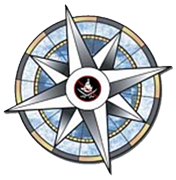FULCRUM LIMITED TRADING AS
MARITIME RISK SOLUTIONS
THE MOST EFFICIENT VESSEL PROTECTION CONCEPT IN THE GULF OF GUINEA ENDORSED BY SEVERAL TANKER MASTERS
|
From my point of view I am most positive - I do find such an arrangement "best possible" if any of our ships are to call WAF. - HSQE Unitankers |
VOYAGE RISK
Masters and crew onboard commercial vessels, even if they are subjected to formal training on the threats at sea regarding attacks and piracy, are never really prepared to deal with these hostile and dangerous situations. As such they are not only technically but also attitude wise completely at a loss for the dangerous eventualities which they might encounter. This situation causes them to be completely insecure and very scared to venture into dangerous areas. The result is that the Master and crew will panic and make unnecessary mistakes which would place the vessel at risk.
As mentioned, the only things pirates are interested in are small valuables like computers, mobile phones, radios and money and then also people for ransom. They stay onboard for a maximum of 20-30 minutes as they realise that assistance will be on the way and their position will be compromised.
Having a person onboard who has the training and experience and is able to embed trust between him and the Master and crew makes all the difference.
The deployment of an unarmed security advisor should not be a substitute for the effective compliance with the Best Management Practices (BMP5). Many successful attacks on vessel could have been prevented had there been a specialist advisor called a Deputy Ship Safety Officer (DSSO) onboard a vessel to train the crew, advise the Master and advise on the hardening of the vessel.
The DSSO has to be enlisted in the shipping company in a proper and legal way and it must be visible to any inspector thus protecting the shipping company and the vessel from any legal actions.
VOYAGE RISK: RESTRICTION IN GULF OF GUINEA
The Gulf of Guinea Regulations:
- The Nigerian Government will not allow any foreign military in their territorial waters.
- The Nigerian Government will also not allow any foreign security onboard commercial vessels in their waters and threatens to arrest vessel crew and security if done so. This even implies security consultants that are unarmed.
- The Nigerian Government vehemently claims sole jurisdiction over their territorial waters and views any interference as a serious threat to their sovereignty.
- The Nigerian Government claims to be capable to maintain a secure environment for commercial shipping in their territorial waters. This has been proven not to be so.
The result of the Regulation:
- Vessel are attacked and crew kidnapped frequently in Nigerian waters without any interference or protection from the Nigerian Navy. There are frequent examples of this.
- If a commercial vessel requires protection in the Nigerian waters it needs to hire these services from the Nigerian Navy at extravagant costs with no outcome guaranteed.
VOYAGE RISK: MITIGATION SOLUTION
For each mission, Maritime Risk Solutions (MRS) conducts Voyage Risk Analysis (ISPS, BPM5) taking different factors into account: time/season, location, duration, vessel, flag-state, insurance, cargo, crew, intelligence reports, etc. When assessing the risk of piracy it is advisable to involve MRS at an early stage in the planning process. This is especially relevant in order to timely address pre-transit vessel hardening. In consultation MRS will supplies the most cost effective unarmed protection solution available which has been tested and tried with great success. The Master, crew and vessel needs it's integrity protected only for the short time the pirates are onboard and proper guidance and supervision and training is require for this to be effective.
The following tasks will be performed by the DSSO:- Assessment of security status of the vessel.
- Update the Ship Security Plan.
- Supervise the update of the hardening of the vessel.
- Training of the Master and crew on unarmed protection.
- Supervise the training and drills of unarmed protection.
- Be next to the Master and advise/supervise the actions during any attack.
- Create a spirit of confidence amongst the master and crew.
- Furnish daily reports.
- Furnish final mission report on vessel, master and crew.
MISSION PLANNING
- The DSSO embark the vessel at Cape Verde/ Las Palmas en-route to GoG and assist on the preparation and hardening of the vessel en-route to Gulf of Guinea.
- Onboard assessment and inspection is done in accordance with BMP5 and our risk assessment.
- All crew are trained and briefed for the various scenarios that might develop in an attack and each person is explained his specific roles and responsibilities according to the tested and tried Unarmed Methodology.
- All hardening is done and specific drills are practiced with the Master at the helm.
- Debriefing after each drill. Confidence and trust is established within the crew.
- DSSO will disembark at a safe port there after the vessel left the Gulf of Guinea.
Operations and transit management includes the following:
- Administration of the DSSO and his activities.
- Travel costs for DSSO inside South Africa to and from their homes to airport.
- Regular Security Updates of total areas of sailing.
- Inland arrangements whilst staying at accommodation awaiting flights inside South Africa.
- Maintaining the up-to-date training skills of the DSSO.
- Full-time 24/7 contact availability for any eventuality.
- Arrangement of support structures in the event of an attack on a vessel.
- Daily feedback to your office on security situation during transit.
| Copyright 2011 Maritime Risk Solutions. All Rights Reserved. |
|
